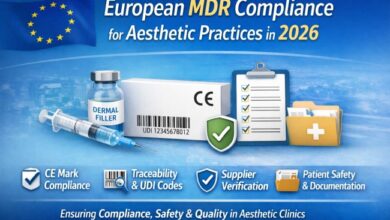5 Myths and Truths About Natural Boosters for Women Over 40

For millions of women, hitting the big “4-0” is more than just a milestone—it’s the start of a whole new wellness journey. Priorities shift, the body’s rhythms change, and questions about health, energy, and hormonal balance take center stage. The marketplace is crowded with “natural boosters” and wellness supplements, promising everything from all-day vitality to ageless skin. But how do you know what’s fact, what’s hype, and what’s safe—especially when friends and the internet are abuzz with conflicting advice?
A good rule of thumb before adding any supplement to your daily routine is to ask tough questions. For instance, many readers wonder, is provitalize safe? But beyond any single brand, it’s essential to sort the science from the spin when it comes to supporting your wellbeing after 40.
In this article, we’ll unpack five of the most persistent myths about natural boosters for women over 40—and reveal the empowering truths you should know before you buy, swallow, or share.
Myth #1: “All Natural Supplements Are Safe—Because They’re Natural”
Truth:
It’s easy to assume that “natural” equals “safe.” After all, how could something from plants or herbs cause harm? The reality, however, is more complicated. While many supplements use natural ingredients, that doesn’t guarantee they are harmless for everyone, especially in concentrated forms or when mixed with other medications.
For example, some herbal boosters like St. John’s Wort can interact with common medications for blood pressure, cholesterol, or depression. Others, like black cohosh (often used for menopausal symptoms), may affect liver health if used long-term or in high doses.
Regulatory standards also vary widely across countries. In the UK and US, the supplement industry is less strictly regulated than pharmaceuticals. According to the National Institutes of Health’s Office of Dietary Supplements, women should always check for reputable brands, look for third-party testing, and talk to a healthcare provider before starting any new supplement.
Key Takeaway:
“Natural” can be powerful, but it can also carry risks. Always research brands, ingredients, and potential side effects, and consult with your GP or a certified nutritionist.
Myth #2: “Supplements Can Replace a Healthy Diet and Lifestyle”
Truth:
No supplement—no matter how advanced—can substitute for a balanced diet, regular physical activity, or adequate sleep. Supplements are just that: supplements. They are meant to fill in gaps, not form the foundation of your wellness strategy.
For women over 40, nutrient needs can change. You may need more calcium, vitamin D, or B vitamins, for example, especially if you’re experiencing perimenopause or menopause. While certain boosters can help, the body absorbs nutrients most efficiently from whole foods: leafy greens, colourful vegetables, lean proteins, and healthy fats.
In fact, the NHS consistently recommends a “food first” approach. Supplements can be useful for deficiencies or specific health goals, but they should always be used as part of a bigger wellness picture—including stress management, regular exercise, and meaningful social connections.
Key Takeaway:
Supplements are a tool, not a shortcut. Focus on holistic health, using natural boosters to support—not replace—your daily routine.
Myth #3: “If It Worked for My Friend, It Will Work for Me”
Truth:
Women’s bodies are as individual as fingerprints—what boosts your friend’s energy or calms her hot flashes might have no effect on you, or even cause unwanted side effects. This individuality extends to physical changes too, with some women finding they need gentle incontinence products while others may not experience these concerns. This is especially true after 40, as hormonal shifts can impact metabolism, digestion, and nutrient absorption.
Clinical studies often report “average” outcomes, but genetics, medical history, lifestyle, and even gut health all play a role in how your body responds to supplements. For example, some women report significant improvements from probiotics or herbal blends, while others notice little to no change.
The best results come from personal experimentation (with your doctor’s guidance) and careful attention to how you feel. Start with single-ingredient boosters so you can monitor effects, and always introduce new products one at a time.
Key Takeaway:
Listen to your own body first. Keep a wellness journal to track symptoms and improvements, and be wary of “one-size-fits-all” promises.
Myth #4: “Supplements Are Always Better Than Prescription Medications”

Truth:
It’s tempting to believe that a capsule of turmeric, ashwagandha, or evening primrose oil is a safer, more natural solution than prescription meds. But while natural boosters can play a role in hormone balance, sleep, and stress, they are not always a replacement for clinically proven treatments.
Some conditions—like osteoporosis, thyroid disorders, or significant hormonal imbalances—may require targeted prescription therapies. Supplements might complement these treatments, but they rarely provide the same level of efficacy or reliability. In some cases, delaying appropriate medical care by relying solely on supplements can actually worsen symptoms or delay healing.
Additionally, mixing certain boosters with prescribed drugs can lead to dangerous interactions or reduced effectiveness. That’s why healthcare professionals recommend discussing all supplements (even “harmless” ones) with your GP or pharmacist.
Key Takeaway:
Supplements can be part of a broader wellness strategy, but they aren’t substitutes for medical advice, diagnosis, or prescription therapies. Use them wisely—and in partnership with your care team.
Myth #5: “There’s No Need to Worry About the Quality or Source of Supplements”
Truth:
With the rise of online shopping and influencer marketing, it’s never been easier—or riskier—to buy supplements from unfamiliar sources. Product quality can vary dramatically, and not all brands test for purity, potency, or contamination.
Adulteration with undisclosed ingredients, heavy metals, or allergens has been found in some lesser-known supplement brands. Choosing supplements that have been tested by third-party labs (look for certifications like NSF, USP, or Informed-Choice) dramatically reduces risk.
It’s also important to consider transparency. Reputable companies provide detailed ingredient lists, sourcing information, and evidence for their claims. For example, before choosing a probiotic or herbal booster, look for published studies or quality seals.
The Office for Health Improvement & Disparities in the UK advises consumers to be particularly vigilant about imported supplements and to consult NHS resources for up-to-date safety alerts.
Key Takeaway:
Buy smart. Trust brands with a track record, clear labelling, and third-party testing. When in doubt, consult your GP or pharmacist.
Evidence, Empowerment, and Self-Care
As women cross the threshold into their forties and beyond, taking charge of health means sorting facts from fads. Natural boosters—from herbs and vitamins to probiotics and adaptogens—can play a meaningful role in wellness. But their power lies in informed, individualized use—not in magic-bullet solutions.
Always start with evidence and personal needs, ask tough questions, and build your wellness strategy on a foundation of balanced nutrition, movement, sleep, and regular checkups. By busting these common myths, you empower yourself to make the best choices for a vibrant, healthy life—at any age.


